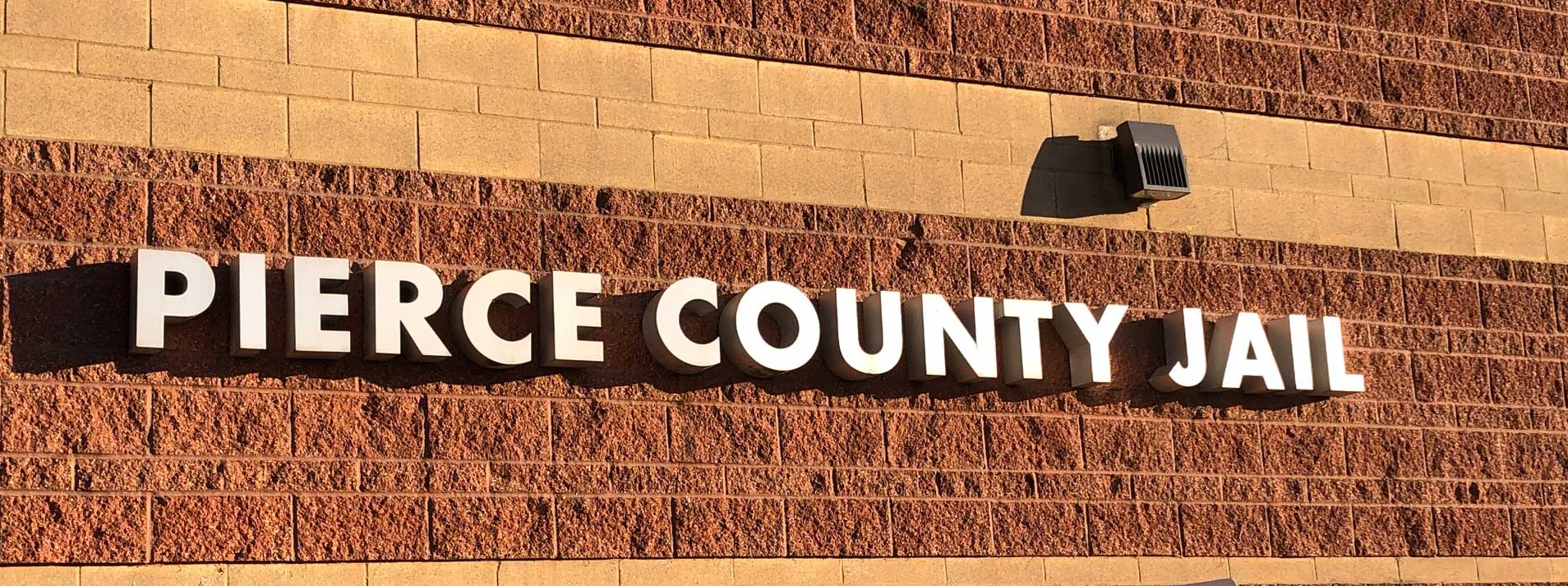I consider trial by jury as the only anchor ever yet imagined by man, by which a government can be held to the principles of its constitution. – Thomas Jefferson
By Morf Morford
Tacoma Daily Index
Most of us dread the arrival of that bland looking blue card in our daily mail.
It’s easy to miss among the clutter of junk mail and political flyers and postcards during election season, but that plain looking card means one thing – jury duty.
Yes, it is an unexpected – and usually unwelcome – intrusion into our established routines of work and family life.
It is also an opportunity to participate and let your voice be heard in a way not many of us ever have. And, as a bonus, you, for better or worse, get a near microscopic view of how our legal system works.
A just legal system is necessarily deliberate. It might seem sluggish, if not cumbersome.
If you have ever been a participant of any aspect of our (or any) legal system, you learn very quickly that this is far more preferable to any hasty judgements.
After being (literally) summoned to jury duty (it is a crime to ignore it), your first stop is the waiting room. The room I was sent to had a capacity of 260 – and it was full each day I was there.
The next step is selection into a good-sized group – maybe 60-80 for a 12 person jury.
60-80 people are needed because a majority will have some kind of work, family or health commitments that do not allow for a dedicated time on a jury.
Jury selection, after all, is for the duration of a trial – which could be anywhere from a few days to several weeks. With legal complications, it could be even longer.
Two members of my jury had been scheduled for a trial that was expected to last six weeks. Their work schedule did not allow it, so they were switched to a shorter trial – closer to two weeks.
My group started with about 60 members and, after being allowed to explain their medical appointments, childcare or financial situations, many were dismissed. Those who were self-employed were allowed to leave as well.
That pared my group down to about thirty. From that point, the two lawyers sifted the group down to 14; 12 members and two more as back-up.
As you might imagine, this process takes two or three full days.
It is a very serious, if not somber process. And if you were a defendant on trial, you would appreciate every intentional step taken to ensure a full and fair trial.
As a potential jury member, it seems like a massive waiting game.
It may be. But every step is essential, due diligence in compiling relevant evidence and compelling witnesses takes time. Rushing to judgment is easy.
Coming to a fair and thorough verdict takes work – and it should.
I had served on a jury before, about five years ago. Back then, the presiding judge had a simple word of advice; don’t judge the defendant on his size, ethnicity, tattoos or appearance, or even on his previous criminal record. The jury’s decision rests on the evidence of this case only.
How simple so many of our arguments about religion or politics – or even household duties – would be if we could focus exclusively on the evidence at hand – not on presumed motives or even intentions.
There’s no getting around it – evaluating evidence and observing witnesses is tedious – if not challenging, or sometimes even disturbing. You probably won’t leave a trial with an elevated view of humanity.


The individuals on trial have been accused – but are presumed innocent until proven guilty. In my two jury experiences, both defendants had been in court multiple times. That does not make them guilty on this particular charge, but, as with each one of us, we never walk entirely free of our past.
The two defendants I had to judge were both hapless men, worn and weary by what life had done to them. Both of them were caught in the current of decisions – some by themselves – but far more by parents, teachers, friends or accidental acquaintances.
Their opportunities were rarely if ever positive. Circumstances and choices made for them set them on a momentum – a social conveyer belt – the well-known “public school to prison pipeline”.
Whether they were guilty of the crime they were charged with is for the jury to decide.
The crimes and depredations upon them, the hands that dragged them into a world of destructive choices will be judged by another court entirely.
We who sit on juries would probably never find ourselves in the circumstances where their “bad decisions” seemed reasonable or even the only ones.
It is our distance from such circumstances that is required for a fair trial.
But if we are honest, it is only an accident of fate that we do not find ourselves in that dangerous and confusing territory.
I know many people who drifted along and made one too many wrong decisions and ended up among many others going, inevitably it seems, down a journey of petty (or not so petty) crime, addiction and incarceration.
I also know several who made the same – or even worse – life decisions, but because they knew the right person, never passed that defining threshold, and much to the surprise of those who knew them, currently live lives of public respectability.
Life choices – and their repercussions – may not be fair, but a jury system goes out of its way to be fair.
The system, as Jefferson stated it, is under trial as much as any defendant.









